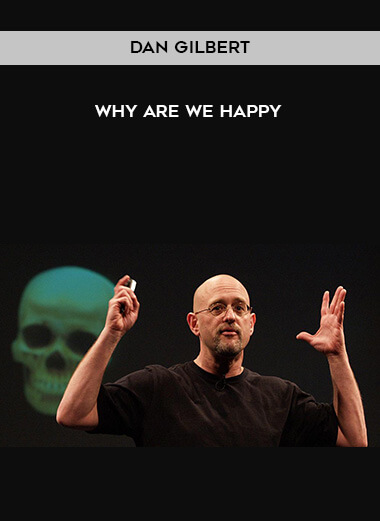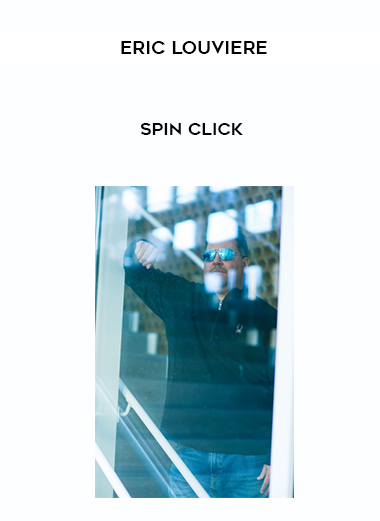Dan Gilbert – Why Are We Happy

Arichive : Preview
Humans have tripled their brain mass in the last 2,000,000 years. That has led to the emergence of the prefrontal cortex, which is an experience simulator. No other animal can imagine an experience in their heads before trying it out in real life.
The problem with the experience simulator is that it greatly overestimates the impact of the experience on the individual’s happiness: impact bias – the tendency to overestimate the hedonic impact of future events (elections, romance, promotions, college tests, medical tests, insults, gambling, moving to California…)
However, a study on lottery winners and paraplegics showed that a year after winning the lottery, and a year after losing their legs, lottery winners and paraplegics are equally happy with their lives.
Generally, research shows that, with a few exceptions, if a major event or trauma happened in your life 3 months ago, it has almost no effect on your happiness now.
Why? Because happiness can be synthesized. Human beings have a “psychological immune system”. A system of largely non-conscious cognitive processes, that help us change our views of the world so that we can feel better about the world. We synthesize happiness, but we think happiness is something to be pursued.
Examples of famous people synthesizing happiness:
- Jim Wright: “I’m so much better off physically, financially, mentally and in almost every way” – chairman of the House of Representatives, resigned in disgrace after a shady scandal
- “I don’t have one minute’s regret. It was a glorious * experience” – Moreese Bickham, 78, who spent 37 years in prison for a crime he didn’t commit
- “I believe it turned out for the best” – Harry S. Langerman, 83, who in 1949 couldn’t get the money to open the first McDonald’s franchise. Ray Kroc opened the franchise and ended up managing the chain and earning $500M.
- “I’m happier than I would have been with the Beatles.” – Pete Best, 1994, original Beatles drummer, rejected in favor of Ringo Starr.
If your reaction is “yeah, right, he didn’t really want the job”, that’s because we believe that “synthetic happiness” somehow inferior to “natural happiness”. Natural happiness is produced when we get what we want, and synthetic happiness is produced when we don’t get what we want. Why do we believe that synthetic happiness is inferior? Because what economic system would keep churning if we didn’t want stuff? (A shopping mall full of zen monks wouldn’t be particularly profitable because they don’t want stuff enough.)
It can be shown that synthetic happiness is as real and enduring as “natural happiness” using the experimental “Free choice” paradigm:
- subjects are presented with 6 paintings and are asked to order them from the most liked to the least liked. They order the paintings 1, 2, 3, 4, 5, 6. After the experiment, they are offered as a prize one of paintings 3 or 4. It’s a difficult choice, because none was strongly preferred over the other, but most subjects still chose painting #3. The experimenters told the subjects they would mail the print at the end of the entire experiment. Two days or two weeks later, in the second part of the experiment, the subjects are presented with the same 6 paintings and asked to rate them again… and this is happiness in the making: the resulting order is 1, 3, 2, 5, 4, 6. Notice how the painting that was rated 3 jumped to the second position in the top, and the painting that was rated 4, jumped to the 5th. “The one I got was really better than I thought; the one I didn’t get, sucks” – the synthesis of happiness.
- If your reaction is “yeah, right” because the subjects would obviously remember their choices, you’re wrong. The same experiment was repeated with patients with anterograde amnesia, who can’t form new memories. To check if they’re really amnesic, they were asked 30 minutes after the first part of the experiment to name which painting they chose to own in the first part. All of them guessed. After confirming they didn’t form the memory, they were asked again to rank the paintings. The results were exactly the same as those of the first experiment. The shocking result is that the amnesics liked better the print they owned, but they didn’t know they owned it! When these people synthesized happiness, they truly changed their affective, hedonic, aesthetic reaction to that poster. They didn’t say they liked it because they owned it, because they didn’t know they owned it.
The psychological immune system works best when you have no choice. This is the difference between going on a date and being married. You go out with someone on a date, they pick their nose, you don’t go out with them again. If your spouse picks their nose… they’re a heart of gold and a great person blah blah. You find a way to be happy with what’s happening.
What are the implications of this? Consider another study: Harvard students were taught a dark room photography course and at the end of the course were asked to pick the top 2 photograph prints that they had made and liked most. After that, they were told that they could keep only one of the prints, and the other had to be archived by the experimenters as proof of the course.
- subgroup 1 was asked to decide which of the 2 prints to keep, but they had 4 days during which to change their mind and decide to keep the other print. After the 4th day, the decision became final.
- subgroup 2 was asked to decide on the spot which print to keep, and their decision would become final right then.
As you may guess, subgroup 2 ended up being happier with their choice of a print, because subgroup 1 kept thinking, even after the 4th day, that they could have made the other choice.
Now for the kicker: another set of two groups of students were presented with the opportunity to participate in a dark room photography course, and the choice between:
- having 4 days to decide which print to keep
- deciding on the spot which print to keep, and the decision being final.
66% of the students chose option #1, which allowed them more choice. 66% of the students, in actuality, set themselves up for unhappiness.


![[Audio Only] IC19 Workshop 53 - Ericksonian Psychotherapy Based on Universal Wisdom - Teresa Robles digital download](https://intellschool.com/wp-content/uploads/2022/02/zBVVPUWub0mSPxtpbCdDPA-200.jpg)




























Reviews
There are no reviews yet.